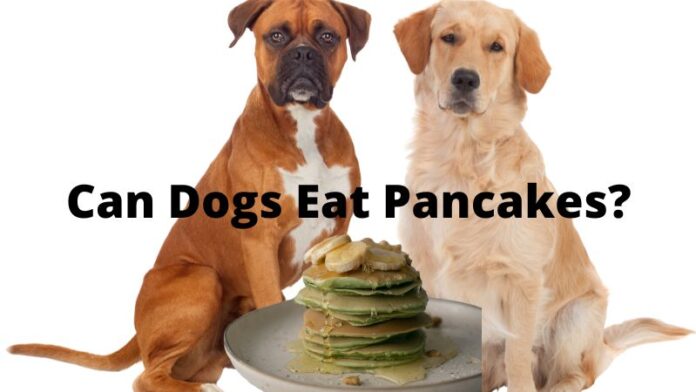Are you wondering if your furry friend can share in your breakfast joy? The quick answer is yes – dogs can eat buckwheat pancakes when prepared properly and served in moderation. These tasty treats can be a safe occasional snack for your pup but there are some important things to consider.
Why Buckwheat Pancakes Might Be Good for Your Pup
Buckwheat, despite its name, isn’t actually wheat at all! It’s a nutritious pseudo-grain that’s packed with benefits for your four-legged friend When making pancakes for your doggo, buckwheat flour can be a fantastic alternative to regular wheat flour, especially for pups with gluten sensitivities.
If you’re looking for more comprehensive info about dog nutrition and care check out our dog care guides for expert advice and tips.
Making Dog-Safe Buckwheat Pancakes
Here’s how to whip up some tail-wagging good pancakes:
Simple Recipe
- 1 cup buckwheat flour
- 1 mashed banana (natural sweetener)
- 1 egg
- 1/2 cup water or unsweetened almond milk
- No added sugar or syrup!
Cooking Instructions
- Mix ingredients until smooth
- Cook on medium heat
- Keep ’em small for easier portion control
- Let cool before serving
Important Safety Tips
Before you start flipping those pancakes, here are some crucial things to remember:
- Plain is best – avoid additives
- No chocolate chips or xylitol
- Skip the butter and syrup
- Serve in moderation
- Start with small portions
When to Avoid Buckwheat Pancakes
Some doggos might not do well with buckwheat pancakes if they:- Have grain allergies- Are on special diets- Have sensitive tummies- Are overweight
The Benefits of Buckwheat for Dogs
When prepared properly, buckwheat pancakes can offer your pup:- High protein content- Essential minerals- Fiber for digestion- Gluten-free nutrition
For more detailed pet nutrition advice and fun articles, visit Pet like boss, your go-to source for all things pets!
Signs Your Dog Enjoys Their Pancakes Too Much
Ya know how it goes – once your fur baby gets a taste of something good, they might start doing the whole “puppy eyes” routine every time you’re in the kitchen! While can dogs eat buckwheat pancakes safely, remember that moderation is key.
Frequently Asked Questions
Can I make buckwheat pancakes in advance?
Yep! Store them in the fridge for up to 3 days.
How many pancakes can my dog eat?
Depends on your dog’s size, but generally stick to 1-2 small pancakes per serving.
Are there alternatives to buckwheat flour?
Sure thing! Oat flour or coconut flour work great too.
Alternative Healthy Treats
If buckwheat pancakes aren’t your pup’s thing, try these instead:- Fresh fruits (apple slices, bananas)- Veggie chunks (carrots, sweet potato)- Plain yogurt- Peanut butter (xylitol-free)
The Bottom Line
So, can dogs eat buckwheat pancakes? The answer is yes, but with some common-sense precautions. These treats can be a fun addition to your dog’s diet when prepared safely and served occasionally. Just remember to keep portions small and ingredients simple.
Tips for First-Time Doggy Pancake Makers
- Do a small taste test first
- Watch for any adverse reactions
- Keep the recipe simple
- Have patience with the cooking process
- Store leftovers properly
Making Pancake Time Special
Turn pancake time into bonding time! Here’s how:- Make mini pancakes for training rewards- Use cookie cutters for fun shapes- Create a special “pancake plate” just for your pup- Take cute photos of your dog enjoying their treat
Remember, while buckwheat pancakes can be a safe treat for dogs, they shouldn’t replace regular meals. Always consult with your vet before introducing new foods to your dog’s diet, especially if they have existing health conditions or dietary restrictions.
Your furry friend’s health and happiness should always come first, so while treating them to special snacks like buckwheat pancakes is fun, make sure it’s part of a balanced diet and healthy lifestyle. Happy pancake making!
Disclaimer: This article is for informational purposes only and should not replace professional veterinary advice. Always consult your vet before making changes to your dog’s diet.












